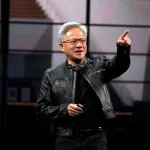Baidu CEO changes position on open source amid DeepSeek breakthrough

Baidu CEO Robin Li stated at the World Government Summit in Dubai that investments in data centers and cloud infrastructure remain necessary, despite DeepSeek’s achievements in optimizing large AI models.
“Investments in cloud infrastructure remain crucial. Creating models that surpass existing developments requires significant computational power,” Li emphasized, addressing summit participants. The term “computational power” refers to hardware resources that enable AI models to operate, including data training, information processing, and prediction generation.
The statement came amid growing attention to Chinese startup DeepSeek, which developed language models comparable in performance to leading systems like OpenAI’s GPT but requiring significantly fewer computational resources. This breakthrough questioned the necessity of large-scale investments in AI infrastructure.
Baidu, one of the first Chinese companies to launch AI products after ChatGPT’s release in late 2022, created the large language model Ernie, which the company claims matches GPT-4. However, the model has seen limited distribution among users.
Li’s change in position regarding AI technology development is noteworthy. Previously, he claimed that the emergence of a company like OpenAI in China was unlikely and advocated for closed source code as the only viable path for AI development. However, at Tuesday’s summit, Li acknowledged the unpredictable nature of innovation, illustrated by DeepSeek’s sudden success: “It’s impossible to predict when and where innovations will come from.”
Li also noted that limitations in computational power have stimulated Chinese companies to innovate in cost reduction. Additionally, he softened his position on closed-source development, acknowledging that open approaches could accelerate AI technology adoption.





